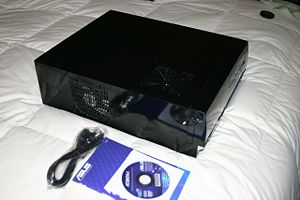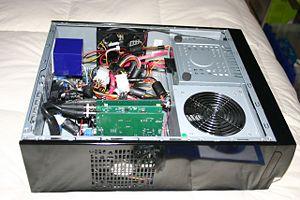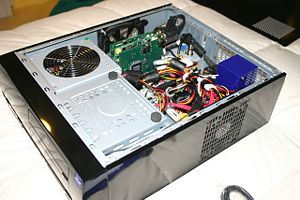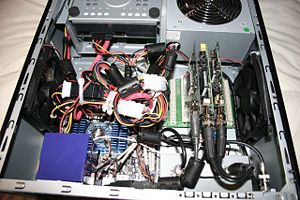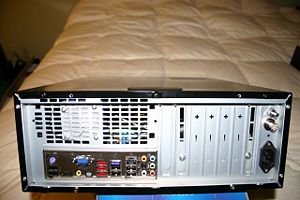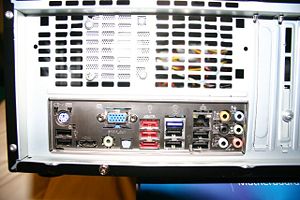Difference between revisions of "The Rino R-1 Solution"
(Load photos) |
(+cat) |
||
| (6 intermediate revisions by one other user not shown) | |||
| Line 1: | Line 1: | ||
| − | |||
[[Image:Rino R-1 front.jpg|thumb|300px|Front and right side of completed Rino R-1 HPSDR]] | [[Image:Rino R-1 front.jpg|thumb|300px|Front and right side of completed Rino R-1 HPSDR]] | ||
[[Image:Rino R-1 left top view.jpg|thumb|300px|Left side and top view of completed Rino R-1 HPSDR]] | [[Image:Rino R-1 left top view.jpg|thumb|300px|Left side and top view of completed Rino R-1 HPSDR]] | ||
| − | [[Image:Right side top view Rino R-1.jpg|thumb|300px|Right side and top view of completed Rino R-1 HPSDR] | + | [[Image:Right side top view Rino R-1.jpg|thumb|300px|Right side and top view of completed Rino R-1 HPSDR]] |
[[Image:Rino R-1 rear top view.jpg|thumb|300px|Rear top view of completed Rino R-1 HPSDR]] | [[Image:Rino R-1 rear top view.jpg|thumb|300px|Rear top view of completed Rino R-1 HPSDR]] | ||
[[Image:Rino R-1 rear view.jpg|thumb|300px|Rear view of completed Rino R-1 HPSDR]] | [[Image:Rino R-1 rear view.jpg|thumb|300px|Rear view of completed Rino R-1 HPSDR]] | ||
| − | [[Image:Close up | + | [[Image:Image-Close up rear Rino R-1.jpg|thumb|300px|Close up of rear of Rino R-1 HPSDR]] |
| + | |||
| + | In this solution, we move closer to integrating the PC's audio functions into the HPSDR transceiver. This system design uses the newly available Ozy-Mini from NT-Electronics, by Gerd - DJ8AY, which has no CW key/keyer inputs. It also explores the issue of audio latency using the low latency ASIO audio drivers and VAC, Virtual Audio Cables. Packaging has improved but there is no room left over for RF amplifiers or band pass filters, so this rig will need an external amplifier such as the Tokyo Hy-Power HL-45B to be complete. | ||
| + | |||
| + | ==== The Rino R-1 Case ==== | ||
| + | |||
| + | The Rino R-1 desktop Case comes with a 450 Watt power supply and four fixed speed 12 Volt fans (2X 120mm side fans and 2x80mm fans at the rear). The design modification was to remove all the fans and replace the two 120mm fans with the same size Antec three speed fans and set them to the slowest speed to keep down the noise. The Atom 330 is a low power CPU and has its own fan installed above the central heat sink for all the motherboard chips, no more than this was considered to be required. | ||
| + | This case is on sale at Indianapolis Fry's with a USD mail-in $15 rebate until the end of December, 2009. The cost was USD $79.99 - the USD $15 rebate = USD $ 64.99. One of the attractions was that the Atlas backplane and boards could be located in the case with room for the cards, cabling, the NT-Electronics antenna switch, and one optical drive. | ||
| + | ==== EMC ==== | ||
| + | |||
| + | There was a concern over using an unproven power supply in this new case and also with receiver noise pick up with such compact packaging. So far it looks like the power supply and other noise pickup is acceptable with the use of many clamp-on RF filters. The greatest reductions were noted by adding the devices to the USB2 and Penelope to antenna switch cables. | ||
| + | |||
| + | ==== Motherboard ==== | ||
| + | |||
| + | This system uses the new Intel Atom 330 dual core CPU, but this time we selected a new non-Intel MotherBoard with BlueTooth. The motherboard is an ASUS AT3N7A-I at a cost of $159.99 vs. $79.99 for the Intel Atom Motherboards. | ||
| + | |||
| + | [[Category:Hardware]] | ||
Latest revision as of 12:06, 25 January 2010
In this solution, we move closer to integrating the PC's audio functions into the HPSDR transceiver. This system design uses the newly available Ozy-Mini from NT-Electronics, by Gerd - DJ8AY, which has no CW key/keyer inputs. It also explores the issue of audio latency using the low latency ASIO audio drivers and VAC, Virtual Audio Cables. Packaging has improved but there is no room left over for RF amplifiers or band pass filters, so this rig will need an external amplifier such as the Tokyo Hy-Power HL-45B to be complete.
The Rino R-1 Case
The Rino R-1 desktop Case comes with a 450 Watt power supply and four fixed speed 12 Volt fans (2X 120mm side fans and 2x80mm fans at the rear). The design modification was to remove all the fans and replace the two 120mm fans with the same size Antec three speed fans and set them to the slowest speed to keep down the noise. The Atom 330 is a low power CPU and has its own fan installed above the central heat sink for all the motherboard chips, no more than this was considered to be required. This case is on sale at Indianapolis Fry's with a USD mail-in $15 rebate until the end of December, 2009. The cost was USD $79.99 - the USD $15 rebate = USD $ 64.99. One of the attractions was that the Atlas backplane and boards could be located in the case with room for the cards, cabling, the NT-Electronics antenna switch, and one optical drive.
EMC
There was a concern over using an unproven power supply in this new case and also with receiver noise pick up with such compact packaging. So far it looks like the power supply and other noise pickup is acceptable with the use of many clamp-on RF filters. The greatest reductions were noted by adding the devices to the USB2 and Penelope to antenna switch cables.
Motherboard
This system uses the new Intel Atom 330 dual core CPU, but this time we selected a new non-Intel MotherBoard with BlueTooth. The motherboard is an ASUS AT3N7A-I at a cost of $159.99 vs. $79.99 for the Intel Atom Motherboards.
